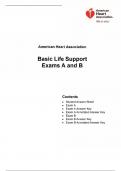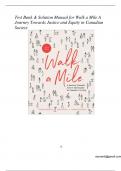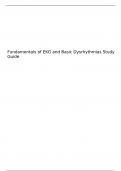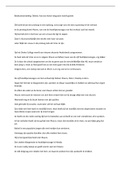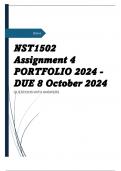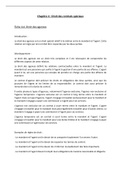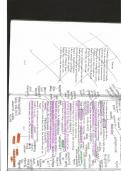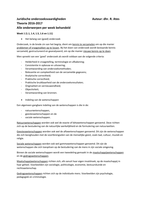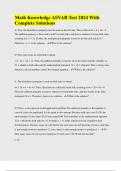Other
AHA Basic Life Support Exams A and B: Answered Updated.
- Course
- Institution
AHA Basic Life Support Exams A and B: Answered Updated..-While performing high-quality CPR on an adult, what action should you ensure is being accomplished? A. Maintaining a compression rate of 90 to 120/min B. Placing hands on the upper third of the sternum C. Allowing the chest to recoil 1 inch D...
[Show more]
